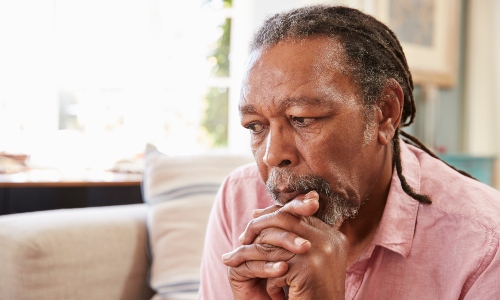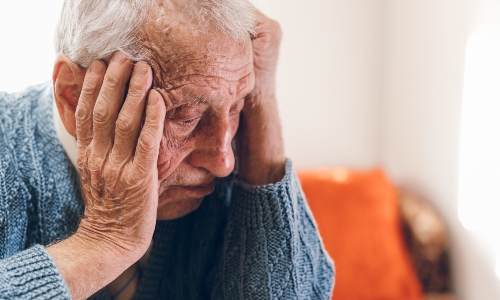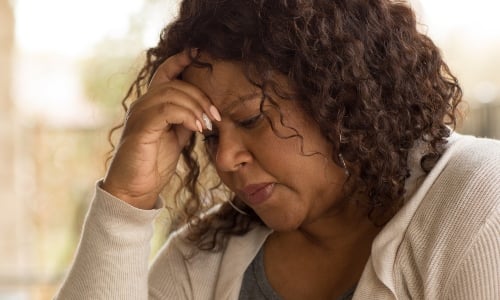Winter can be tough at any age. It’s particularly tough during a cost-of-living crisis, which has left many of us concerned about food and energy prices as the weather gets colder.
However, physical changes associated with ageing mean older people face additional health risks over winter, turning it into a very difficult time.
Recent research by Age UK found that:
- 52% of older people (8.5 million) were concerned or very concerned about winter.
- 20% of older people (3.3 million) were worried that they would not have enough to eat.
- 45% of older people (7.4 million) worried that they would not be able to heat their home.
Unique challenges
For older people, winter can present significant difficulties. The likelihood of living with one or more long term health conditions rises directly in line with age, and some conditions can become harder to manage as the weather gets colder – particularly respiratory and musculoskeletal conditions. Older people are also more susceptible to the severe impacts of common respiratory diseases such as the flu, COVID-19, and respiratory syncytial virus (RSV), and make up a large proportion of those who need hospital treatment and care.
And it’s not just the respiratory system that’s at risk – as we get older, loss of muscle mass and other age-related physical changes mean our bodies are less able to regulate temperature. This can make us more likely to be affected by chronic or extreme cold, increasing the risk of heart attacks and strokes.
Whether due to these health impacts or seasonal changes in lifestyle, many older people are also less inclined to be physically active during the winter months. This decrease in activity can lead to physical deconditioning and can also impact mobility, strength, and balance. And for those who do get out of the house, wet or icy weather can make outdoor conditions more precarious for anyone less steady on their feet.
Winter can present plenty of mental health challenges, too. Loneliness and social isolation are year-round problems, but winter can be particularly tough as weather conditions, shorter days, and changes in people’s health and wellbeing often make it harder to sustain social connections. This all means that older people are more likely to spend additional time at home over winter, which has implications for heating costs and finding the finances to stay warm.
These challenges also increase the risk of an older person experiencing an adverse health event, which all too often ends in a hospital admission. Between 2021 and 2022, there were 223,101 falls related hospital admissions alone in people over the age of 65 – 146,934 of those people being over the age of 80 (see more information here).
We know that older people in crisis account for a significant proportion of activity across urgent and emergency care, with people aged over 65 accounting for half of all patients arriving to A&E by ambulance, as well as being more likely to be admitted. Once in hospital, older people are more likely to have longer stays and require additional support on discharge.
The winter ahead
Although every winter can be difficult, the past few years have proved even more challenging as older people have grappled with the consequences of the pandemic, increased difficulties accessing the health and social care system, a cost-of-living crisis, and the co-circulation of flu and COVID-19.
There is little sign that this winter will be any easier. Age UK is continuing to hear from significant numbers of older people who are struggling to cope with soaring prices, depleted savings, and managing their energy bills.
But most alarming is the number of older people telling us that their resilience is now at rock bottom and they don’t know how much longer they will be able to cope. Without any intervention or support this winter, the consequences could be severe.
How to help
A good place to start is supporting and encouraging individual older people, families, and communities to take simple steps that can significantly reduce the risk of physical deconditioning, seasonal infections, and common health problems emerging or escalating over the winter months. Equipping older people with the right information to help keep warm, eat well, get vaccinated, stay active and connected can all make a huge difference – as can a place to turn for a little extra help and support before a problem escalates into a crisis.
We have free resources available
You'll be able to find a host of public resources on our website that can be used to signpost older people. They are available to everyone – including professionals – and the information is also available in hard copy.
Each year, Age UK runs a nationwide Winter Health Campaign, which provides the right information and advice to help older people stay well in winter. We are also working with our network of Local Age UK partners to get the message out. Many Age UKs across the country will be giving out resources, providing practical support to older people – like handyperson help and winter benefit checks – and delivering services that can step in when an older person is in crisis. Find out more information about what is happening in your area during winter.
This year, in addition to our public facing resources, Age UK has also brought together best practice in system-working to sustain older people’s health through winter. Our new guide – which will be available soon on our Professionals Hub – explores the opportunities of using population health approaches to reduce pressure on urgent and emergency health services, as well as looking at how services can support improved discharge, reduce readmissions, and roll out of urgent community response and virtual wards.
Although the upcoming winter will undoubtedly be difficult, we all have a responsibility to ensure we support older people, families, and communities to build and sustain their resilience in the months ahead.
Information you can trust
Our monthly professionals newsletter covers a range of information and advice topics, helping professionals offer older people the most relevant and up-to-date guidance.






